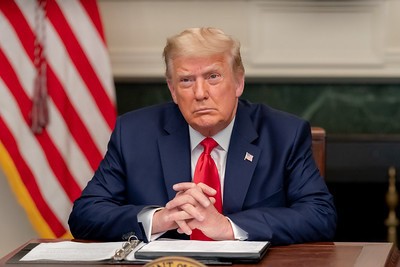In August, the office of Department of Justice Special Counsel Jack Smith brought forth four felony charges against the former president and current frontrunner for the Republican presidential nomination in 2024, Donald Trump, for his alleged illegal efforts to overturn the 2020 presidential election results and stay in power.

Trump's lawyers are appealing District Court Judge, Tanya Chutkan's decision to deny his bid to dismiss election charges on his claim of immunity. Trump has pleaded not guilty to allegations that he defrauded the United States, obstructed Congress, and violated the civil rights of voters through schemes in hopes of overturning his loss to President Joe Biden. Reuters revealed Trump has accused prosecutors of a politically motivated effort to damage his campaign for the Nov. 5, 2024 election.
The timing of the court's decision is considered crucial as to whether Trump will stand trial in March as previously scheduled. Progress in the case has come to a standstill as the immunity appeal remains to be resolved. The Justice Department maintains its policy against criminally charging sitting presidents to safeguard their ability to perform executive duties, however, the Supreme Court has not definitively ruled on whether former presidents have absolute immunity from criminal prosecution.
Special Counsel Smith stated,tersely, that "[Trump] is wrong."
What Is Next For Trump?
Trump's lawyers continue to argue that the appeals court should order the dismissal of the case citing Trump is exempt from prosecution as the actions occurred within the scope of his official duties as president.
The four-count indictment brings Trump to trial for conspiring to disrupt the certification of electoral votes in Congress on Jan. 6, 2021, and inciting a riot when his supporters violently stormed the U.S. Capitol-- motivated by his false claims and confronted capitol police.
The Associated Press reported that Special Counsel Smith's team maintains that no such immunity exists in the Constitution or case law and that, in any event, the actions that Trump took in his failed effort to cling to power aren't part of a president's official responsibilities.
Earlier this month Smith asked the U.S. Supreme Court to bypass the lower appeals court and immediately resolve the issue in an attempt to shut down Trump's requests for a delay. The Supreme Court denied the request, giving the D.C. Circuit court full reign on the issue for now.
© 2026 HNGN, All rights reserved. Do not reproduce without permission.









